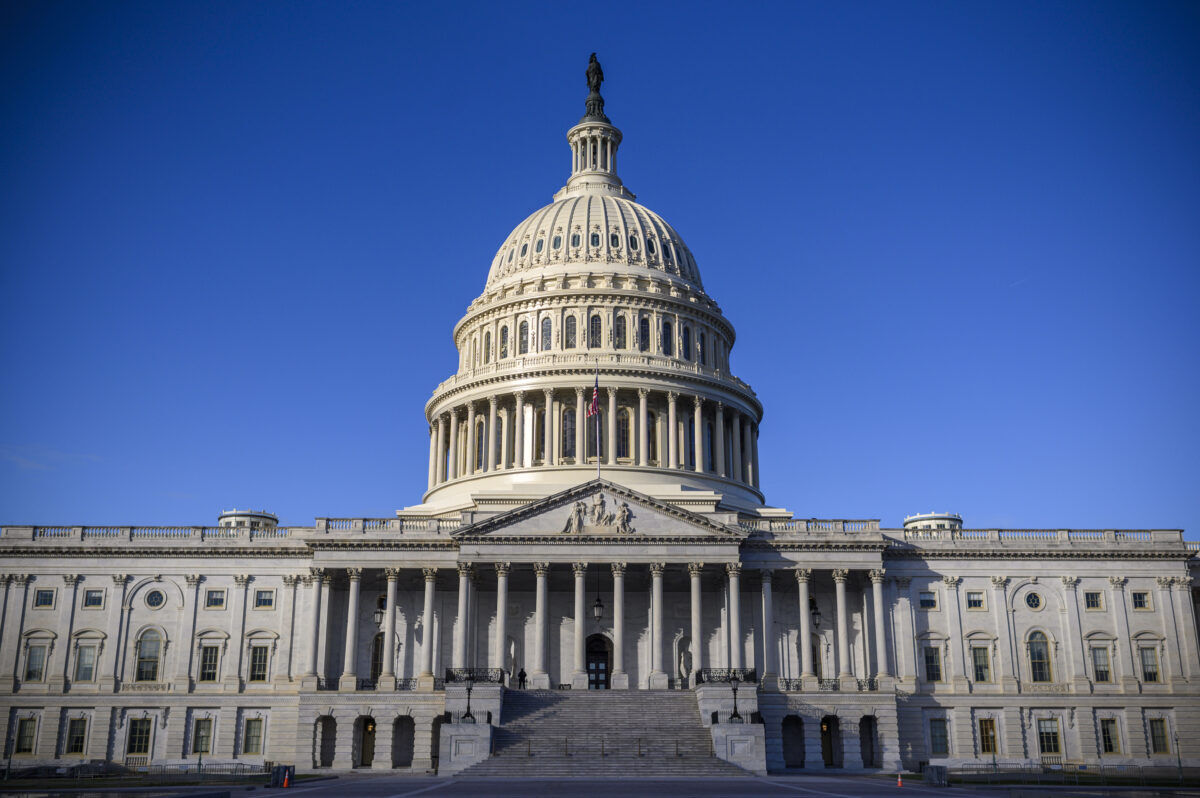US Treasury to Hit Debt Ceiling by November: Congressional Budget Office
The Congressional Budget Office (CBO) said on Wednesday that the U.S. Treasury Department is projected to exhaust its debt limit by October or November, as Democrats seek to raise that limit for trillions more in funding. Republicans say they oppose the move.
As of June 30, an additional $6.5 trillion had been borrowed, bringing total federal debt to $28.5 trillion. The new debt limit is set to be decided by August 2021.
Since taking office, President Joe Biden has signed a $1.9 trillion dollar COVID-relief package and Democrats are gearing up to push another $3.5 to $6 trillion package for infrastructure, climate change action, and other Democrat-backed initiatives through to Biden’s desk, with or without Republican support.
Republican lawmakers had opposed proposals for the $1.9 trillion package and are now in opposition of the $3.5 trillion infrastructure legislation, calling it wasteful spending that will only drive up inflation and taxes.
“I can’t imagine there will be a single Republican voting to raise the debt ceiling after what we’ve been experiencing,” Senate Republican leader Mitch McConnell told Punchbowl News in an interview published Wednesday morning. “I can’t imagine a single Republican in this environment that we’re in now—this free-for-all for taxes and spending—to vote to raise the debt limit,” he said.
The debt limit—also known as the debt ceiling—is the maximum amount of debt the Department of the Treasury can issue to the public or to other federal agencies. The amount is set by Congress through the legislative process and has been increasing over the years to finance the government’s operations.
The budget office estimates that, if the debt limit remains unchanged, the ability to borrow using those measures would be exhausted and the Treasury would probably run out of cash sometime by November 2021.
“The timing and size of revenue collections and outlays over the coming months could differ noticeably from CBO’s projections. Therefore, the extraordinary measures could be exhausted, and the Treasury could run out of cash, either earlier or later than CBO projects,” the office said in its report.
Sen. Joni Ernst (R-Iowa) talks to media on Capitol Hill in Washington on Feb. 3, 2020. (Charlotte Cuthbertson/The Epoch Times)
Sen. Joni Ernst (R-Iowa), an outspoken opponent of federal overspending, recently supported Sen. Rick Scott’s (R-Fla.) bill, the Federal Debt Emergency Control Act, to rein some of the government borrowing in.
“Despite being almost $30 trillion in debt, President Biden and congressional Democrats are continuing to propose trillions in additional spending of taxpayer dollars. If Iowans are expected to live within their means and balance their budgets, our federal government should too. This bill takes commonsense steps to hold Washington politicians accountable and to provide a pathway forward to tackle our nation’s debt crisis,” Ernst said in a June press statement.
The bill would require the Office of Management and Budget to declare a “Federal Debt Emergency” in any fiscal year where the debt exceeds 100 percent of that year’s Gross Domestic Product (GDP), which would then trigger several provisions to help control and reduce the federal debt to levels below 100 percent of GDP.
The National Taxpayers Union’s Director of Federal Policy, Andrew Lautz, praised the legislation, saying that the nation’s elected representatives in Congress need to get in control of the deficit.
“Congress needs to get serious about record debt and deficit levels, while also working to avoid back-breaking tax hikes on the middle class and small businesses. Senator Scott’s Federal Debt Emergency Control Act would give Congress the tools it needs to meaningfully address the debt when it outgrows the size of the economy. NTU applauds Senator Scott for leading this fiscally responsible effort,” Lautz said.
Meanwhile, during a June Congressional hearing, Secretary of the Treasury Janet Yellen implored lawmakers to raise the debt ceiling or otherwise face catastrophic results to the social welfare policies offered to Americans that many rely on.
“Failing to increase the debt limit would have absolutely catastrophic economic consequences. It would be orderly unprecedented in American history for the United States government to default on its legal obligations. I believe it would precipitate a financial crisis, it would threaten the jobs and savings of Americans,” Yellen said. “And at a time when we’re still recovering from the COVID pandemic, I would plead with Congress, simply, to protect the full faith and credit of the United States by acting to raise or suspend the debt limit as soon as possible.”
Originally found on Epoch Times Read More








